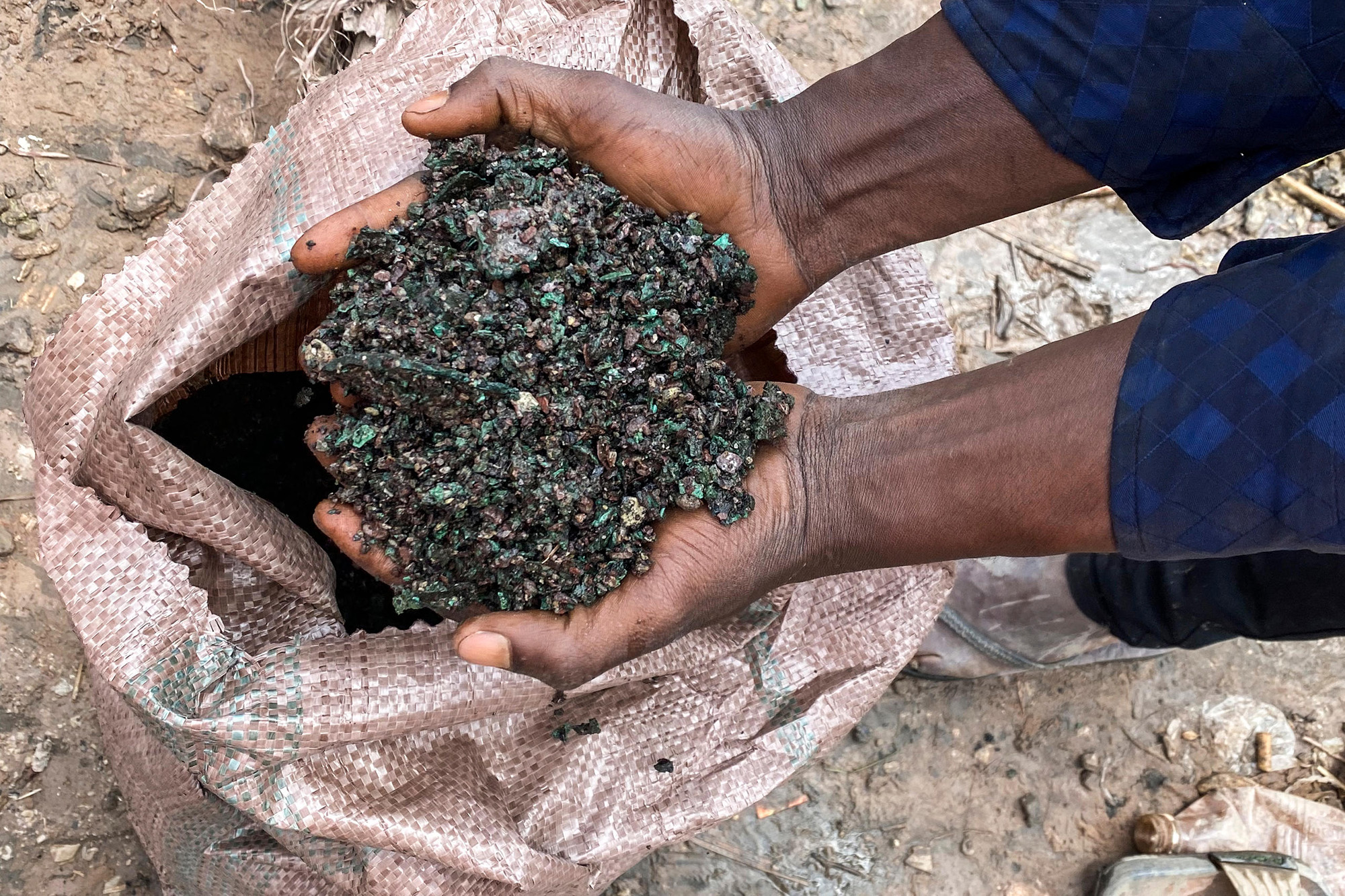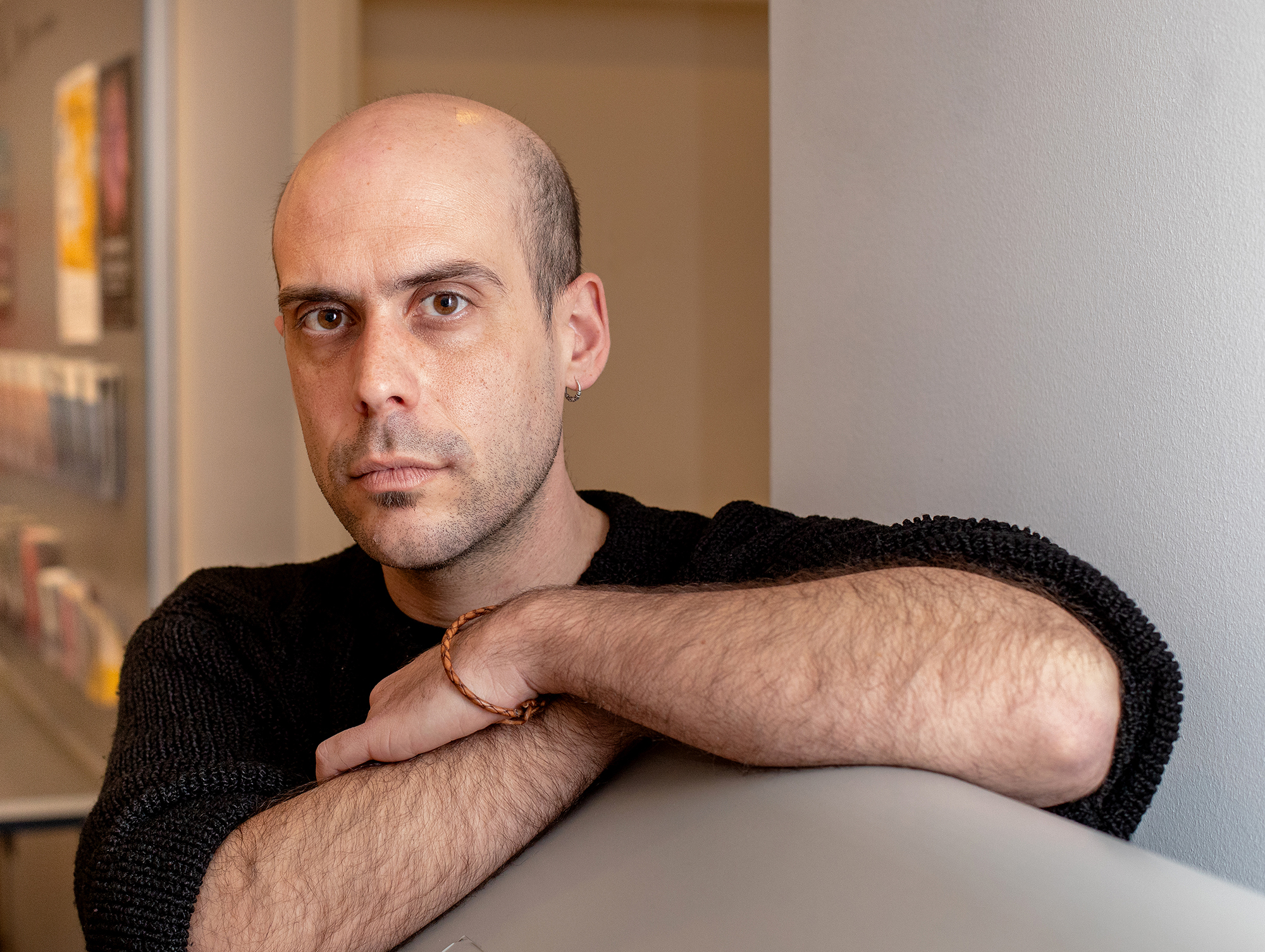"If we don't protect the soil, the situation is chaotic."
- Soils play a fundamental role in preserving the environment. However, in Europe every year some 1,000 square kilometres become asphalt, the size of some 500 football fields a day. Industry, as well as intensive agriculture and livestock farming, deteriorate the biodiversity of rustic and urban soils. Agronomist Paula Tordesillas, general coordinator of the campaign saves the soil (ground saved) that Ekologistak Martxan is carrying out in the Spanish State, is one of those who want to reverse the situation. He has visited Bilbao to talk about soil degradation.

It concerns the soil, not the land. What's the difference between the two?
Many believe that the ground is dead, but the opposite is true. It is a living substrate and depending on the soil different types of ecosystems are formed. We know that many microorganisms and invertebrates live in the soil, it is impossible to know the complexity of these ecosystems, since very little research has been done on them. But it is clear that they are of great ecological importance. The ground, however, can die and is dying. Urbanism, mining, intensive livestock farming and industrial waste lead to deforestation and erosion.
They call for a legal framework that protects the soil. What would be the characteristics?
More than concrete laws, we call for a change in the model of land exploitation; there are laws to protect the biology of land, but they are not respected. Companies often act irresponsibly, destroying the land. Environmental measures could be put into effect in the budgets, but it is easier for the fine to be paid. However, the damage is not economic, but biological, as the soil does not reproduce. They have to pay, but above all they have to repair what they have destroyed.
“Well managed land can be one of the keys to climate change”
If the soil has the chance to recover itself?
In some cases, the damage is perpetual. However, nature has the ability to recover and soil as well. But the problem is that that reform has been going on for many years. The influence of human beings is so great and enduring that nature does not have time to recover. The land may have a sustained loss of matter of two hectares or two tons a year, that is, it would be able to reform it naturally. Once that geological velocity has passed, the soil erodes faster than it reinvents itself.
What are the biggest threats to soil today?
As has been said, if this continues, the biological wealth of soils will be lost. It becomes sterile and then we can say that the ground is dead. If soil fertility is interrupted, in addition to the amount of production, the quality of food is impaired. Food has less and less food, we can say we eat chemical fertilizers and water. Food is health, so that's what we're playing.
Strong changes in the soil ecosystem have also become a problem. The transformation of the field used for livestock into orchard may weaken soil micro-organisms. Land use change is always detrimental if it is done spontaneously. Each soil ecosystem has specific characteristics over many years. If there is no time to adapt, it is becoming more and more sterile.
What is the impact of climate change?
It affects you in a number of ways, but the most worrying thing is the change in rainfall. It is known that the frequency of rains is decreasing in many places, but when it rains it does so with great intensity. Most microorganisms live on the skin, and human intervention uncovers. Chubascos, therefore, lead to soil biodiversity.
.jpg)
How does excessive urbanism affect the soil?
Three building criteria must be followed in rural areas. Firstly, of course, that the land is not built. The objective must be to develop the rural environment and to demonstrate the need for its location. These are the conditions, but how do we measure what rural development is? There may be different interpretations. There are fewer and fewer environmental representatives in the regional environmental committees, the urban perspective is gaining ground.
Pollution will not help either.
With pollution the same thing happens, there are laws that are not respected and the soil is not properly cared for. Few people know that well-managed soil can be one of the keys to climate change. One of the solutions to climate change is on the ground that we tread. Today, eroded soils emit CO2; if the ecosystem were to be cared for, the soil would collect CO2 instead of spilling, as trees do. Considering that agricultural plowing has to do with soil erosion, alternatives have been proposed. However, care must be taken, since these alternatives are herbicides, it would not be surprising if the interests of the petrochemical industry were to be found behind these campaigns.
What is the situation of rural soils in urban areas?
It is similar, there are many soil conservation plans in themselves, but very little progress is being made in practice. Many cities have compost as a destination to revitalize their lands. However, the institutions do not promote environmental education or take measures to promote it. Recycling of plastics and glass is particularly encouraged in cities. It is OK, but behind them there are also economic benefits, such as those of Ecoembes.
“Transnational corporations will begin to invade the lands of the countries of the south when European lands have been completely eroded. The process is already underway”
Recently, in Mokoa, Colombia, 328 people died and 69 disappeared due to a landslide. Many experts have accused, in part, of urban and forestry austerity.
I don't know Mokoa's characteristics, but there's no reason to go that far. The slopes of many mountains in the Basque Country are suffering more and more from the construction of heavy machinery. The slopes are completely cracked, causing detachments.
If things do not change, in what situation will the soils find themselves in a few years' time?
In the case of Europe and the West, in general, when the land has been completely eroded, transnational corporations will begin to invade the lands of the southern countries. The process is already underway. The case of Spain is exemplary, it is a European orchard, yes, but in a few years’ time they will begin to move towards Morocco. As peasants are becoming less and less, transnational corporations occupy increasingly large lands and accelerate soil erosion. If it is in the hands of agricultural companies, it is impossible to build food sovereignty. Eating will become a luxury and not a right, but a food based on chemicals. If we do not protect the soil, the situation is chaotic.
Salva el suelo kanpaina 400 bat taldek osatzen duten People4soil Europar Herri Ekimenaren parte da. Europako erakundeei presio eginez, lurzoruak babestuko dituen marko juridikoa lortu nahi dute. Ekimena aintzat hartu dadin, EBko milioi bat lagunen sinadurak behar dira, gutxienez zazpi estatutakoak. Kezkatuta dago Tordesillas, ordea; arrazoiak arrazoi, ez dute lortu nahiko luketen oihartzuna. Espainiako Estatuan 40.500 sinadura bildu behar dituzte iraila bukatu baino lehen; orain arte 1.800 inguru lortu dituzte.
In recent years, the leaders of the CAV have fed more and more of the speeches and ways of doing in Madrid, which has made the public media here, and not so public, into loudspeakers of their accounts.
Madrilenian populism is imposing on us; that is, the model of dualistic... [+]

























